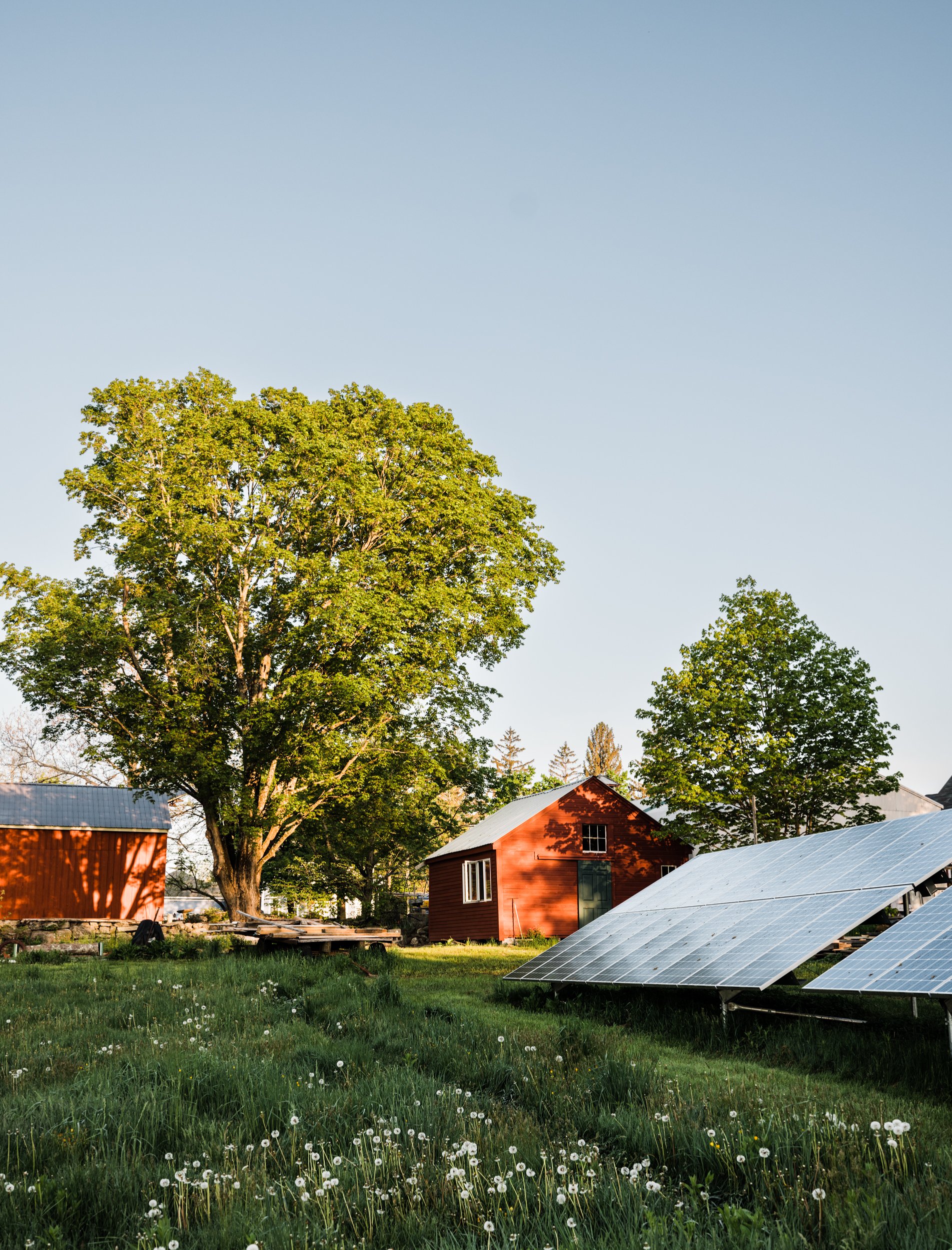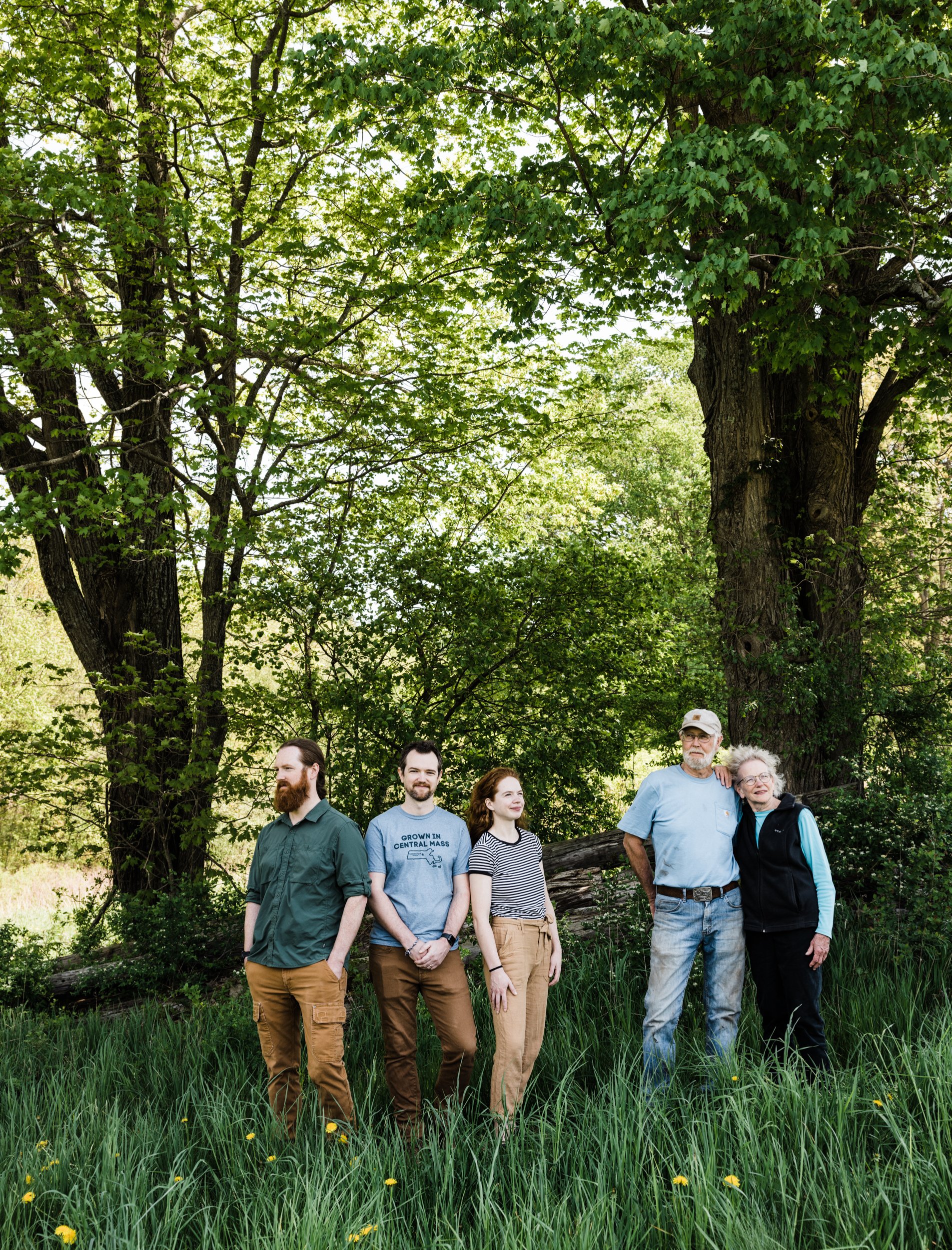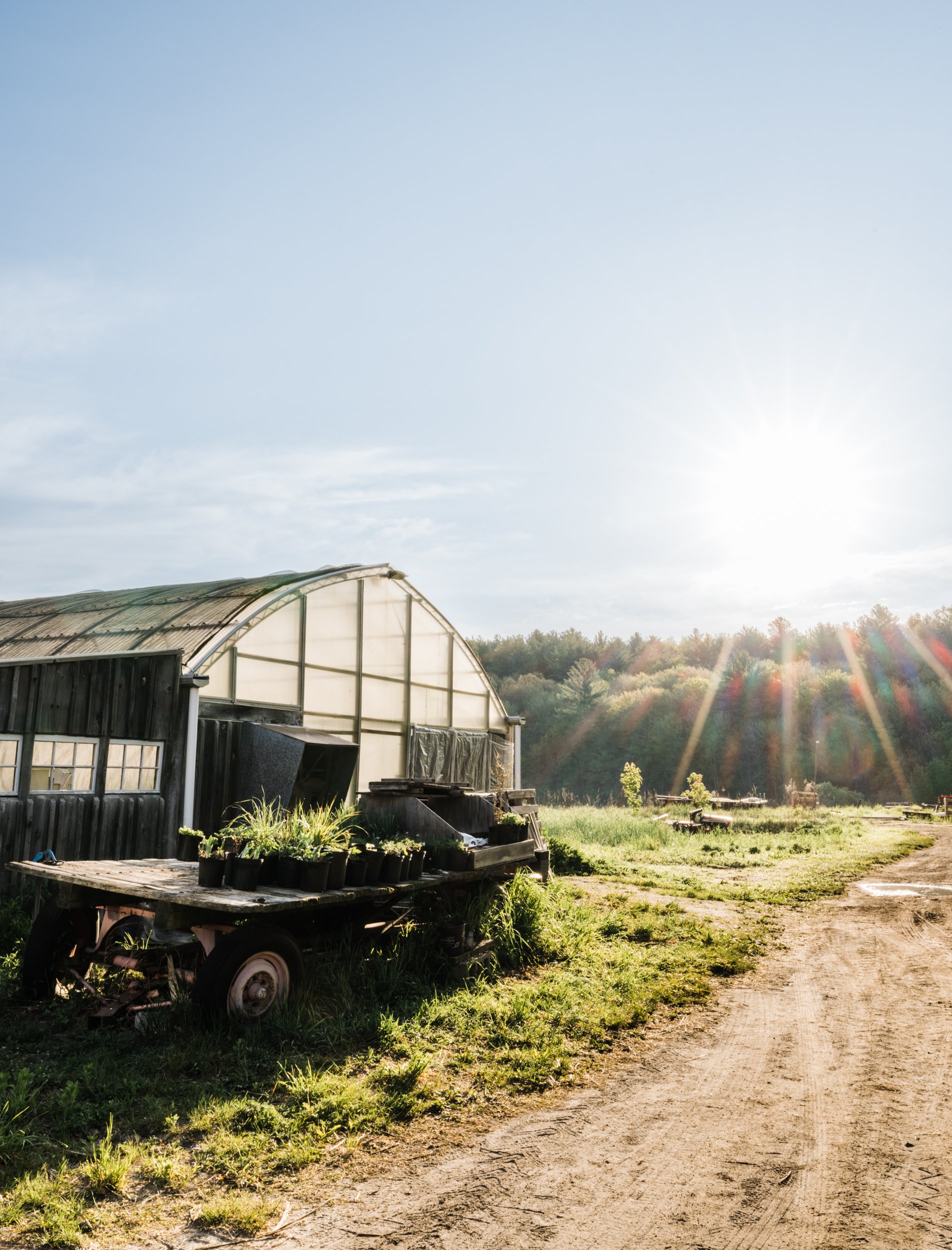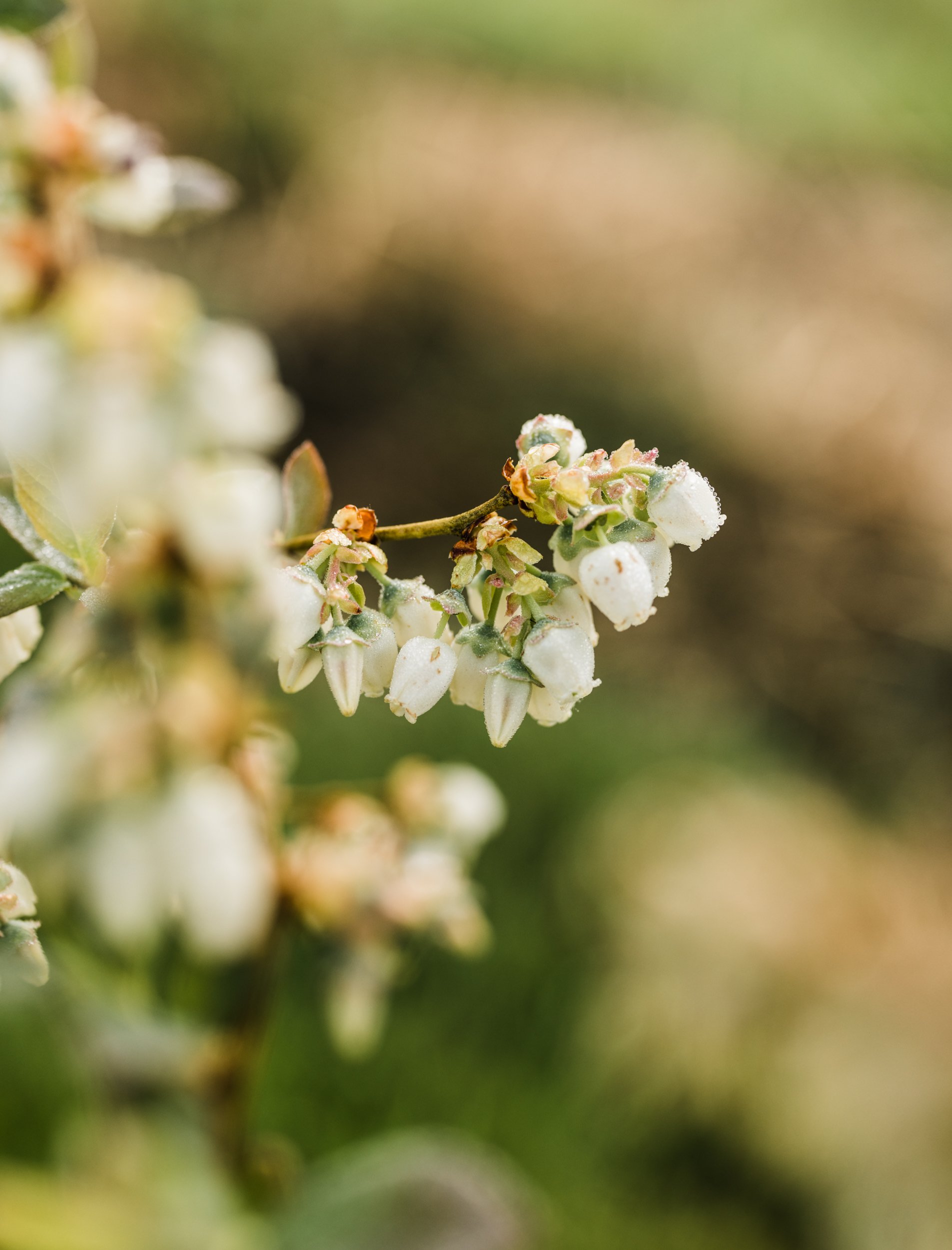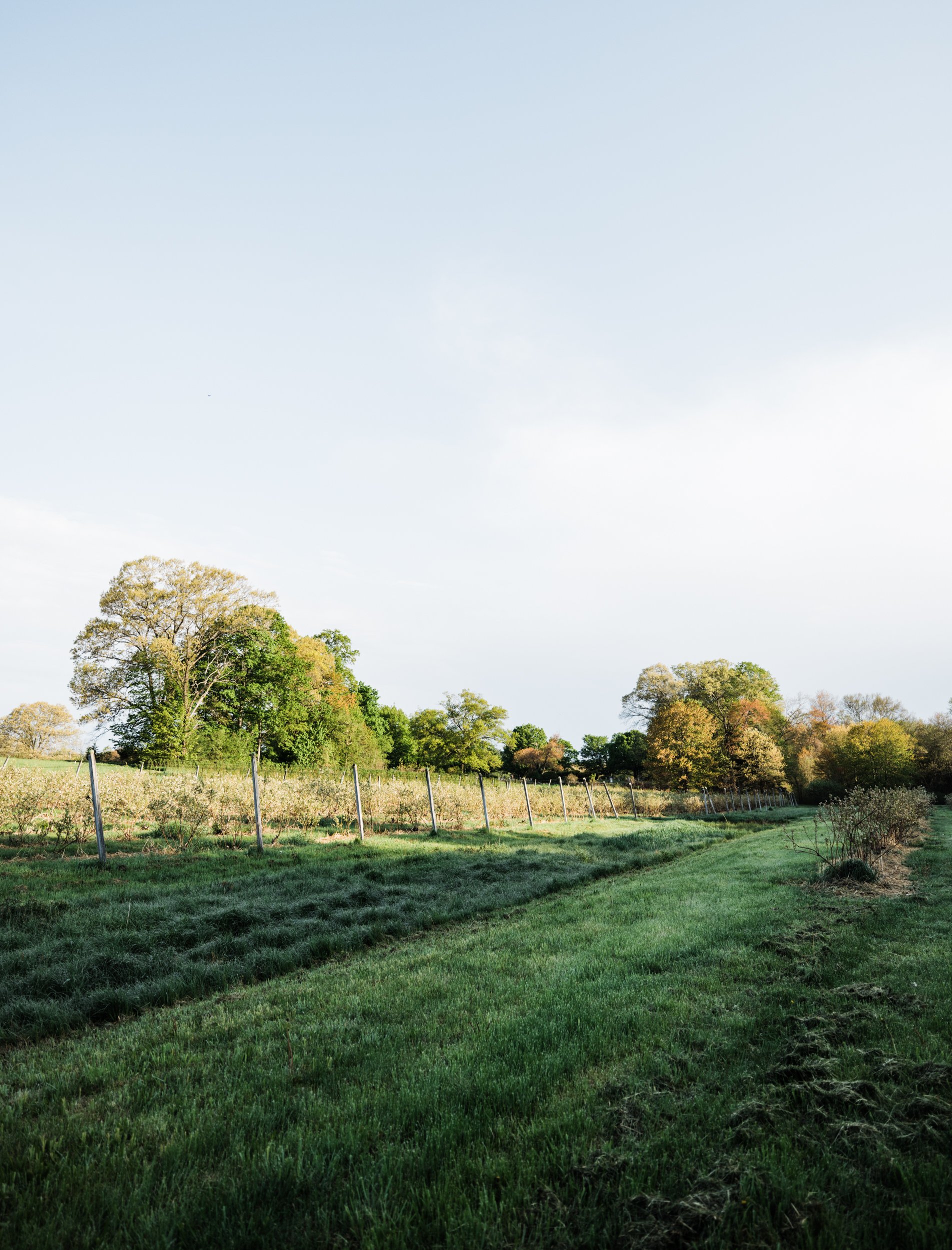The Seventh Generation at Cordelia’s Farm
Photos by Michael Piazza
Buried in the attic of the family farmhouse, a trunk full of diaries and correspondence dating back to the early 19th century inspired a new name as well as a path forward for Cordelia’s Farm. The Wheeler family can trace their farm’s history back to 1834, when it was purchased by four-timesgreat- grandfather Ephraim. Ever since, family members— sons, daughters and a particularly resilient widow—worked the 110-acre farm in Berlin, a small town located about 15 miles northeast of Worcester.
The farm had been called Indian Head since the 1870s, “though we haven’t been able to find out why,” says Tim Wheeler, its sixth-generation owner. “Without knowing why, it’s hard to use the name as a means of understanding who we are.”
As ownership of the farm was transitioning to a seventh generation—sons James and Nate took on the day-to-day management in 2022—Tim and his wife, Janet, discovered the treasure-trove of documents that recorded the daily life of great-great-great-grandmother Cordelia. She was the widow of Christopher (CS) Hastings, the farm’s second-generation owner, who died in the Civil War.
After Christopher’s death and the subsequent deaths of two of her three sons, Cordelia became matriarch of a sprawling family complex that included her daughters-in-law, grandchildren and great-grandchildren, as well as a host of other relatives. She and her surviving son, Arthur, ran the farm. Cordelia also was active in the community until her death in 1903.
In one of her diary entries dated Thanksgiving 1876, Cordelia wrote: “… Trotted all day had a family gathering of brothers & sisters to the number of 37...”
As the family sorted through Cordelia’s letters and diaries it became obvious that sharing her story was a good way to reintroduce the farm.
“If Cordelia hadn’t held things together after her husband’s death, things would have been entirely different for us,” says James. “We were interested in finding a way to recognize her for her critical role in our family’s history.”
Every room of the 250-year-old farmhouse where the Wheelers live contains links to that history. Cordelia’s portrait, as well as a painting of a long line of soldiers paying their respects at her husband’s burial in the town cemetery, hang in the dining room. In the kitchen, there’s the original wood-fired cooking stove and in the bedrooms are quilts stitched by generations of grandmothers and aunts.
Ever since its founding, the farm has maintained a commercial produce operation. Cordelia’s family picked asparagus and used a foot-pedaled machine to hold bunches together so they could be tied with string. At the height of the season the family loaded as many as 80 dozen bunches of asparagus onto trains that stopped just down the road from the farm. Cordelia’s asparagus was headed to customers in Boston. Today, the farm’s bunches of asparagus are sold to local customers and they’re tied together using the same apparatus used 150 years ago.
Cordelia’s granddaughter raised dairy cattle on the farm. By the time James and Nate Wheeler’s grandfather, Willard, managed the farm in the 1960s, the cows were gone and the main crop was hay for other farms in the area. Tim, the sixth-generation owner, worked alongside his father in the 1980s to develop the farm to include a pick-your-own business. Since then, generations of families in Central Massachusetts have picked strawberries, blueberries, raspberries and flowers at the farm.
After more than 35 years of managing the farm, Tim and Janet were beginning the process of handing over responsibility to their sons James and Nate. Then COVID-19 hit, affecting almost every daily activity.
Although farms in Massachusetts were allowed to remain open during the pandemic, there were numerous restrictions for public health. “We set up an online store with curbside pickup and pick-your-own was by appointment only,” James says. (Now people can come to the farm anytime during open hours).
Concerned about their own parents’ health during the pandemic, the two brothers “kicked them out of the farm store,” James says. Tim and Janet remained heavily involved behind the scenes; even today, you’re likely to find Tim on a tractor in the fields. The daily interaction with employees and customers, however, fell to their sons.
“In many farm families, the older farmer is the dominant figure,” Tim explains, “and there’s a lot of hesitancy to change the way things have always been done. COVID made that part easier for us.”
“Tim has always said that if you don’t have the courage to leave a void, other people can’t fill it,” says Janet.
Both James and Nate worked on the farm while growing up. “There was a fair amount we’d already stepped into,” James notes. He took on managing the day-to-day operations while Nate, who lives in Boston, handles bookkeeping and other responsibilities that can be accomplished offsite.
“James and Nate complement each other in their skills and interests,” Janet says.
Both sons share their father’s goal of getting people onto the farm as a way of enabling them to feel connected to local agriculture. “Getting people into the fields so they can pick their own produce is important to us because it lets them experience that connection firsthand,” says James.
While the appeal of picking your own has remained strong over the years, there have been notable changes in how it’s done. “The focus used to be primarily on picking large quantities of berries either to freeze or make them into jam,” Tim explains. “Folks would come, pick a row or two and go home with trays of berries.”
Although that’s still the tradition for some customers, increasingly there is a social element to picking. “Families and friends come in groups and they want to hang out together,” Tim says. “The experience gives kids the opportunity to see where their food comes from and how it is harvested.”
Several years ago, the Wheelers introduced their own approach to community-supported agriculture (CSA). Instead of weekly boxes of produce, their customers who purchase shares in the farm’s operations get a CSA card that can be used to pay for any product the farm sells for the duration of the season. That includes an assortment of value-added products from other farms in the region sold in the farm store. To extend the growing season, two high tunnel greenhouses were built, making tomatoes, carrots and salad greens available at the farm store into November and December.
The farm has also expanded its crop of flowers. Pick-your-own bouquets have become increasingly popular with bridal parties and other groups who come to pick them for their events. Weddings have been hosted at the farm as well as several farm-to-table dinners. Going forward, the family is looking at other variations, such as working with food trucks to cater to groups of different sizes.
Another development is a 20-kilowatt solar array that enables the farm to produce more electricity than it uses. The Wheelers also plan to replace a diesel pump at the farm pond with an electric pump powered by their on-site solar panels.
The farm continues to practice integrated pest management (IPM), a system that has as its focal point the health of the soil, the environment and the humans who consume the produce grown there. “We’re always experimenting with different growing practices,” James says. “Lately, we have been participating in a study looking at different cover crops, such as mustard for the strawberry beds. The mustard acts as a biofumigant to help naturally manage soilborne diseases.”
The Wheeler family received support in transitioning the farm to its seventh generation from Land for Good, a nonprofit organization that offers farmers assistance in planning and implementing the process of succession.
The organization’s Succession School helped them review their farm business, assess their values and goals, communicate productively with family and consultants and implement what they learned, according to Tim and Janet.
The couple joined the board of directors of Land for Good and have made themselves available to help other farms make the transition to a new generation.
One of the questions in the succession workbook asks, “How do you see yourself spending your time after you leave the farm?” Says Tim, “There’s not a moment that I’ve worried about how I’ll fill my time.”
Now that his sons are responsible for the farm, they’re looking to the past as inspiration for the future. Just as Cordelia and her family supplied their neighbors and the region with fruit and vegetables, the seventh generation’s experience with the pandemic highlighted the importance of being able to produce more food locally.
“We’re paying a lot of attention to viability and resilience,” James says. “One of our goals going forward is to become part of a local food network people can rely on.”
228 Pleasant St., Berlin
cordeliasfarm.com
This story appeared in the Summer 2023 issue.

